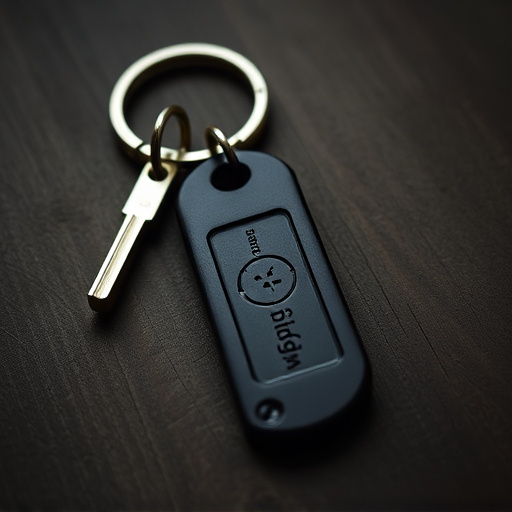Lightweight keychain weapons offer discreet self-defense options for travelers, fitting easily on a keyring and covering pepper spray to advanced blades. Understanding state-by-state regulations is crucial for legal carry, as laws range from liberal to stringent in the U.S. Travelers should stay informed, prioritize safety, store devices properly, and use them only in emergencies.
“Uncover the power of self-defense with lightweight keychain weapons, perfect for travel and everyday carry. This comprehensive guide explores the rising trend of protective keyring devices, shedding light on their legal aspects and state-by-state regulations. From understanding the capabilities of these compact weapons to ensuring safe carriage, we navigate the landscape of legal carry. Discover top states that embrace self-defense rights and learn essential tips for responsible ownership. Empower yourself with knowledge in today’s world.”
- Understanding Lightweight Keychain Weapons
- Legal Considerations for Carrying Protective Keyring Devices
- Top States Allowing Legal Carry of Self-Defense Keychains
- Tips for Safe and Legal Carriage of Keychain Weapons
Understanding Lightweight Keychain Weapons
Lightweight keychain weapons, designed for travel and compact storage, offer a discreet way to enhance personal safety while on the go. These innovative devices are typically small enough to fit comfortably on a keyring, making them easily portable and convenient for individuals who want to be prepared in potential dangerous situations. With various designs available, they can range from simple self-defense tools like pepper spray or taser keychains to more advanced options featuring blades or impact weapons.
For travel enthusiasts and frequent business travelers, lightweight keychain weapons provide a sense of security without sacrificing space or weight in their luggage. Their compact nature allows users to carry them discreetly, ensuring they’re always prepared for unexpected scenarios. This growing trend in self-defense accessories caters to those who seek peace of mind while exploring new places, emphasizing the importance of being ready and capable in an ever-changing world.
Legal Considerations for Carrying Protective Keyring Devices
When it comes to legal considerations for carrying protective keychain devices, or lightweight keychain weapons for travel, understanding state-by-state regulations is paramount. Each U.S. state has its own set of laws governing the open carry and concealed carry of self-defense tools, including keychains designed for protection. It’s crucial to research and comply with local legislation before venturing into another state to ensure you’re not breaking any laws.
Many states allow for the concealed carry of certain self-defense devices with a permit, while others have stringent restrictions or outright ban such items. Lightweight keychain weapons, despite their compact size, fall under these regulations. Travelers should be particularly mindful when transiting through different states, as laws can vary dramatically from one location to another. Staying informed about these legal considerations is key to ensuring a safe and compliant journey.
Top States Allowing Legal Carry of Self-Defense Keychains
In the United States, the legal status of carrying self-defense keychains varies significantly from state to state. For those looking to protect themselves while traveling or in unfamiliar places, understanding these laws is crucial. Several states have relatively liberal regulations regarding lightweight keychain weapons, making them an attractive option for personal safety. Texas, for instance, allows individuals to carry defensive weapons, including certain types of keychain knives, without a permit as long as they meet specific size and design requirements. Similarly, Florida has minimal restrictions, enabling the open carry of small arms, such as keychains, without a license.
Other notable states with favorable laws include Arizona, where residents can carry concealed weapons, including some keychain-sized options, with a valid permit; and California, which, despite having stringent gun control laws, permits the open carry of certain self-defense tools, though specific rules apply. These examples highlight that while federal guidelines exist, state legislation plays a significant role in determining what constitutes legal carry for lightweight keychain weapons for travel, offering diverse options across different regions.
Tips for Safe and Legal Carriage of Keychain Weapons
When carrying a lightweight keychain weapon for travel or personal protection, safety and legality should be your top priorities. Always ensure the device is securely attached to your keyring, making it difficult to dislodge accidentally. Keep it in an easily accessible yet discreet location, such as your front pocket or a secure bag compartment, so you can retrieve it quickly when needed. Familiarize yourself with the local laws of every state you plan to visit; some areas have strict regulations on the open carry of any kind of weapon, including keychain devices. Respect these rules and consider informing yourself about concealed carry permits if you’re visiting states where such permissions are granted.
To maintain the integrity of your keychain weapon, store it properly when not in use. Avoid exposing it to extreme temperatures or moisture, as this can damage or compromise its functionality. Regularly inspect the device for any signs of wear and ensure all components are securely fastened. Remember, these tools are designed for emergency situations only; always prioritize de-escalation and seek help from law enforcement or security personnel whenever possible.
Lightweight keychain weapons, also known as protective keyring devices, offer a convenient and discreet self-defense option for travelers and everyday carry enthusiasts. Understanding the legal landscape surrounding these devices is essential to ensure safe and responsible carriage. Many states in the US have recognized the value of personal protection and allowed the legal carry of such tools, making them accessible for those who wish to enhance their security while on the go. By staying informed about local laws and following best practices, individuals can take advantage of this portable self-defense solution without compromising their safety or legality.
